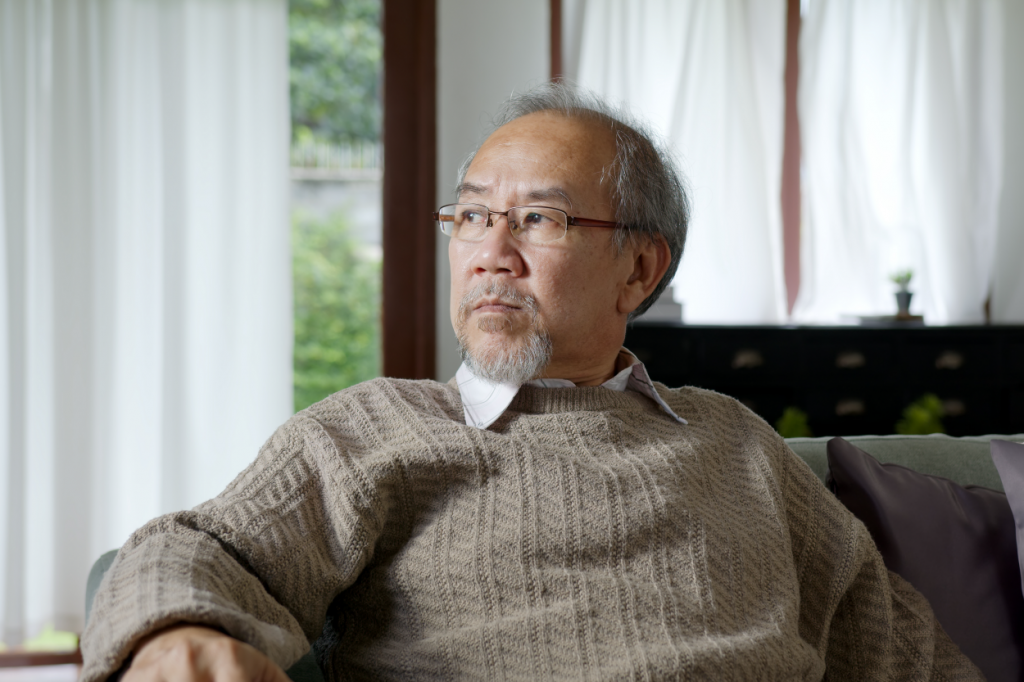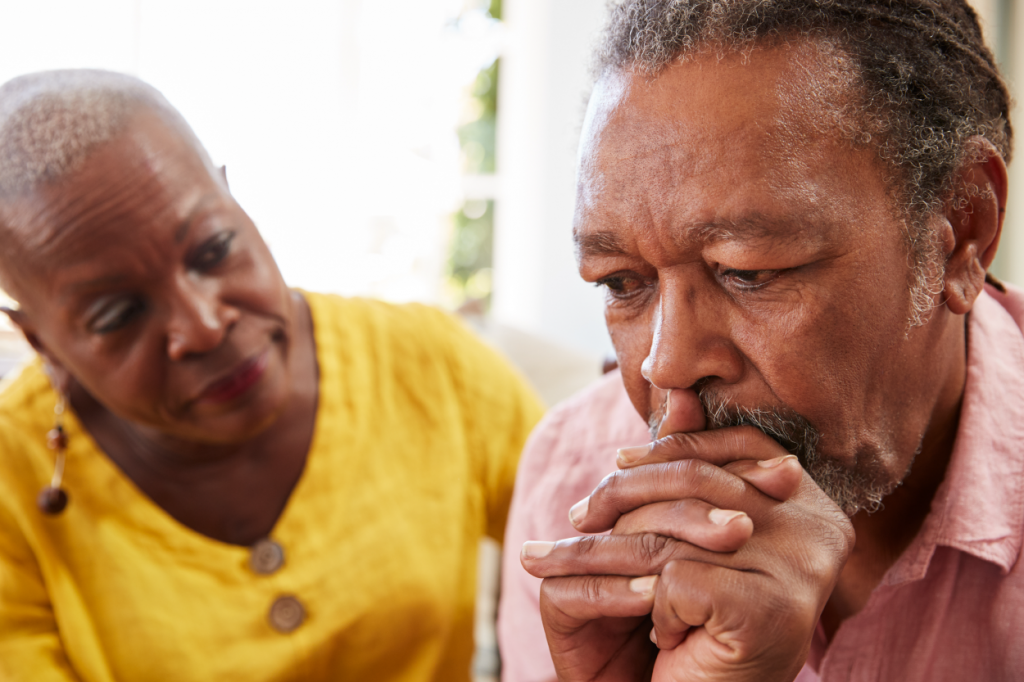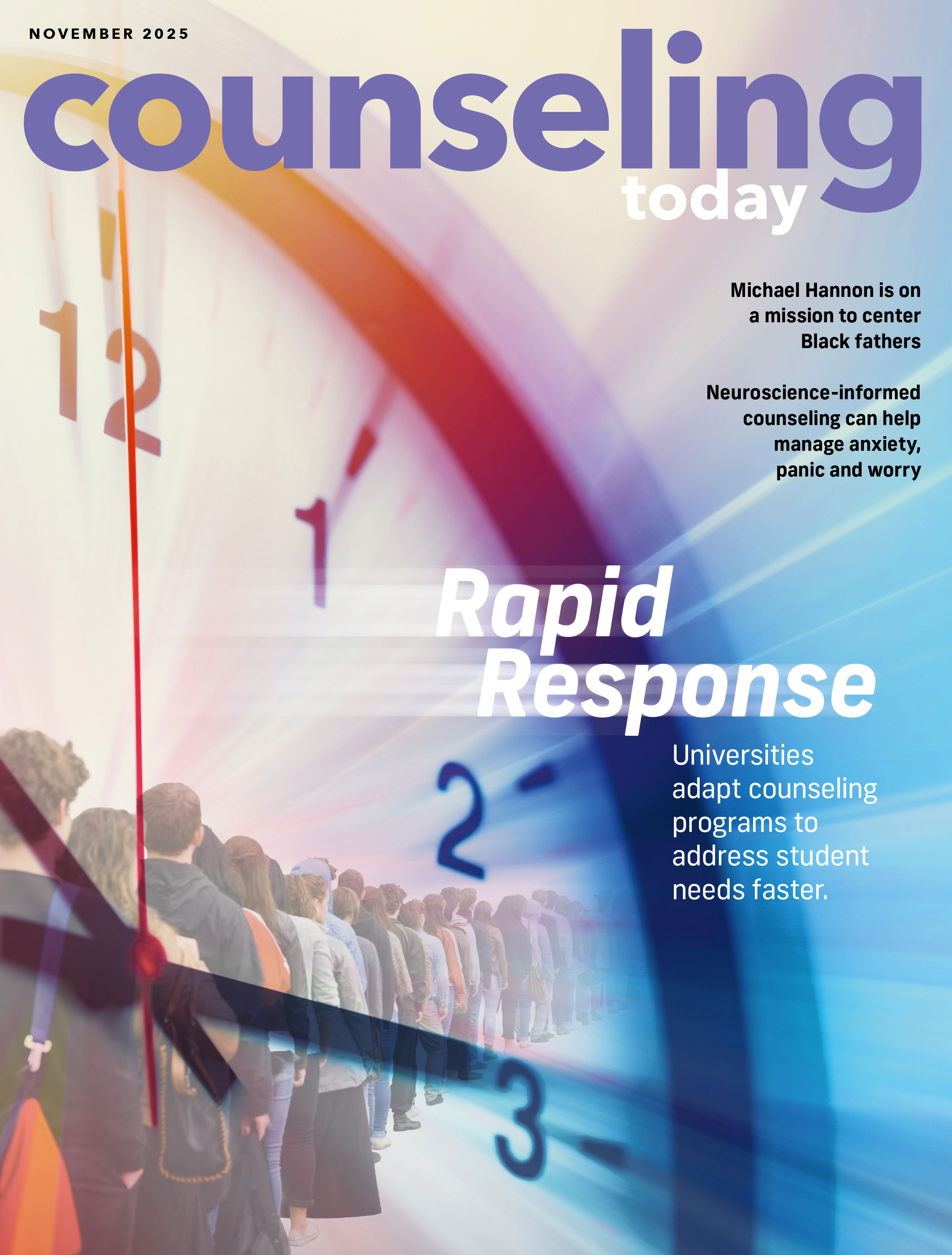Explore Counseling Today Articles
-
 Tough love: Supporting parents of children in unhealthy relationshipsDecember 2022 |By Katie Bascuas
Tough love: Supporting parents of children in unhealthy relationshipsDecember 2022 |By Katie BascuasHaving an adult child who is in an unhealthy relationship can leave parents feeling helpless, but with the support of a counselor, parents can learn to navigate this situation while still maintaining their own well-being.
-
 Pushing back against fatphobiaNovember 2022 |By Bethany Bray
Pushing back against fatphobiaNovember 2022 |By Bethany BrayCounselors must help clients recognize and reject weight stigma before they can begin to heal and reconnect to themselves.
-
 Incorporating clients’ faith in counselingNovember 2022 |By Lisa R. Rhodes
Incorporating clients’ faith in counselingNovember 2022 |By Lisa R. RhodesFaith can play an important role in a client’s healing process, but a lack of knowledge and training often makes counselors hesitant to incorporate it into the therapeutic session.
-
 De-escalating conflict between parents and teensOctober 2022 |By Bethany Bray
De-escalating conflict between parents and teensOctober 2022 |By Bethany BrayFriction between parents and teenage children is an inevitable part of adolescent development, but often the parents need as much — if not more — work in counseling as the teen to build the skills needed to navigate conflict.
-
 ‘Not a monster’: Destigmatizing borderline personality disorderOctober 2022 |By Scott Gleeson
‘Not a monster’: Destigmatizing borderline personality disorderOctober 2022 |By Scott GleesonThe stigma attached to borderline personality disorder can make both clients and counselors resistant to treatment, but by working together, they can sort through these misconceptions and help clients rediscover themselves.
-
 Disarming angerSeptember 2022 |By Bethany Bray
Disarming angerSeptember 2022 |By Bethany BrayViewing anger as a messenger rather than an adversary can help clients decouple it from shame, unpack its origins, explore related feelings and gain self-awareness.
-
 The shame of sexual addictionSeptember 2022 |By Compiled by Lisa R. Rhodes
The shame of sexual addictionSeptember 2022 |By Compiled by Lisa R. RhodesSolution-focused brief therapy and acceptance and commitment therapy are effective — yet underutilized — clinical approaches counselors can use to help clients with depressive symptoms.
-
 Breaking the silence around the childhood sexual abuse of Black menAugust 2022 |By Lisa R. Rhodes
Breaking the silence around the childhood sexual abuse of Black menAugust 2022 |By Lisa R. RhodesThe childhood sexual abuse of Black men remains a taboo subject, but counselors can help clients break the silence and reclaim their own power.
-
 Counseling a broken heartAugust 2022 |By Bethany Bray
Counseling a broken heartAugust 2022 |By Bethany BrayRomantic breakups often come with a lot of painful feelings and loss, but when processed in counseling, they can also be an opportunity to connect with oneself and make meaning from the experience.
-
 Growing up between culturesAugust 2022 |By Lindsey Phillips
Growing up between culturesAugust 2022 |By Lindsey PhillipsCounseling can provide third-culture kids with a space to grieve their losses and celebrate the beauty and possibility within their unique experiences.
Search CT Articles
Filter CT Articles
Current Issue
Sign Up for Updates
Keep up to date on the latest in counseling practice. Sign up to receive email updates from Counseling Today.


